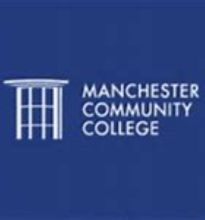Manchester Community College (NH)


Selected Programs at Manchester Community College (NH)
Explore programs at Manchester Community College (NH). This list is curated by SkillPointe to match skills-based industries and careers that don't require a four-year degree.
Browse Training Programs (22)
Training and Development Specialist
Human Services Certificate
As America’s sensitivity to the needs of all its citizens matures, the demand for professionally trained, human service professionals continues to...
View Program
Human Services, A.S.
As America’s sensitivity to the needs of all its citizens matures, the demand for professionally trained, human service professionals continues to...
View Program
Graphic Designer
Graphic Design Certificate
The Graphic Design Program provides students with a comprehensive educational experience that develops creativity, technical expertise and...
View Program
Graphic Design, A.A.S.
The Graphic Design Program provides students with a comprehensive educational experience that develops creativity, technical expertise and...
View Program
Electrician
Electrical Technology, A.A.S.
The electrical field continues to grow in its scope and employment opportunities due to technological advances as well as economic changes and...
View Program
Electro-Mechanical Technician
Electrical Technology, A.A.S.
The electrical field continues to grow in its scope and employment opportunities due to technological advances as well as economic changes and...
View Program
HVAC Technician
Advanced HVAC Certificate
The Advanced Heating, Ventilation and Air Conditioning certificate prepares individuals to apply their technical knowledge and skills to repair...
View Program
Heating, Ventilation, and Air Conditioning, A.A.S.
The Heating, Ventilation and Air Conditioning (HVAC) program provides students with the education and training to enter careers as climate control...
View Program
Welder
Welding Technology Certificate
MCC offers an Associate of Applied Science Degree (A.A.S.) and a Professional Certificate in Welding Technology. Students in the A.A.S. Welding...
View Program
Welding Technology, A.A.S.
MCC offers an Associate of Applied Science Degree (A.A.S.) and a Professional Certificate in Welding Technology. Students in the A.A.S. Welding...
View Program
Medical Assistant
Medical Assistant, A.S.
Medical assistants are multi-skilled health professionals educated to work in ambulatory settings performing administrative and clinical duties. The...
View Program
Medical Records and Health Information Technician
Administrative Medical Assistant Certificate
Administrative medical assistants perform a variety of tasks necessary to make an office operate smoothly. They are responsible for scheduling patient...
View Program
Nurse - LPN / LVN
Nursing, A.S.
The Nursing Program prepares students to provide direct care to patients in acute care, long term care and other structured settings. The program...
View Program
Phlebotomist
Phlebotomy Certificate
Phlebotomists (PBT) are essential members of the healthcare delivery team who are primarily responsible for collecting blood specimens from patients...
View Program
Database Administrator
Computer Science and Innovation, A.S.
The Computer Science and Innovation Associate degree program offers students technical and professional preparation for careers in computer science as...
View Program
IT Support Specialist
Computer Science and Innovation, A.S.
The Computer Science and Innovation Associate degree program offers students technical and professional preparation for careers in computer science as...
View Program
Network and Computer Systems Administrator
Computer Science and Innovation, A.S.
The Computer Science and Innovation Associate degree program offers students technical and professional preparation for careers in computer science as...
View Program
Software Developer
Computer Science and Innovation, A.S.
The Computer Science and Innovation Associate degree program offers students technical and professional preparation for careers in computer science as...
View Program
Electro-Mechanical Technician
Mechatronics Certificate
The Mechatronics Certificate will provide detailed knowledge of machining, electrical and electronic theory as it applies to the latest technologies...
View Program
Industrial Machinery Mechanic
Mechatronics Certificate
The Mechatronics Certificate will provide detailed knowledge of machining, electrical and electronic theory as it applies to the latest technologies...
View Program
Machinist
Advanced Manufacturing Technology, A.S.
The term "Advanced Manufacturing Technology" is used to describe flexible manufacturing systems that use innovative technology to improve the design...
View Program
Applied Career Fundamentals for Advanced Manufacturing Technology Certificate
The Applied Career Fundamentals for Advanced Manufacturing Certificate will prepare the student to enter the workforce in an entry level position. It...
View Program
Robotics Certificate
The Robotics Certificate will provide skills and knowledge of robots in automation technology as needed to provide high quality in a production...
View Program
Preschool Teacher
Early Childhood Education, A.A.S.
The Early Childhood Education (ECE) program is designed to prepare individuals to work with children ages birth through 8 years in a variety of...
View Program
Infant/Toddler Lead Teacher Certificate
Quality infant/toddler care is a critical need in New Hampshire, and more caregivers are needed who are specifically trained in developmentally...
View Program
Auto Mechanic
Automotive Technology Certificate
In the Certificate program, students learn the skills necessary for an entry-level technician’s position. The program combines classroom and practical...
View Program
Automotive Technology, A.A.S.
Today’s automotive technicians need high-level skills and knowledge to diagnose and service increasingly complex systems. The evolution from yesterday...
View Program
Manchester Community College (NH)
Address
1066 Front St
Manchester, NH 03102-8518
Manchester, NH 03102-8518
Phone number
603-206-8000